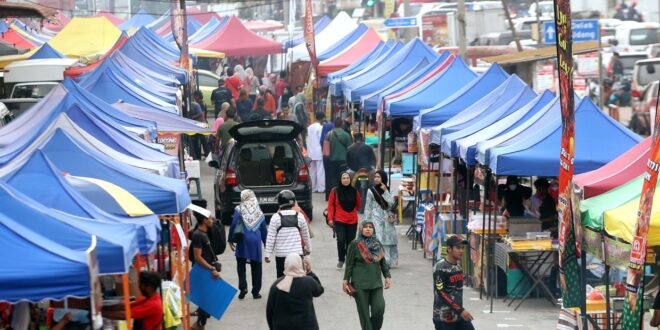GEORGE TOWN: The state Health Department found that 15 food samples from Ramadan bazaars last year tested positive for bacterial contamination.
Penang health committee chairman Daniel Gooi said the 15 food samples were taken from Ramadan bazaars statewide last year.
“They (the 15 food samples) were among 175 food samples or 8.6% sent for microbiology analysis.
“During Ramadan last year, a total of 2,901 stalls at bazaars were inspected and 99.9% (2,899) of the stalls were in satisfactory condition, which means they scored over 80%.
“Last year, we received two complaints with regard to food cleanliness.
“A total of 63 compounds were issued last year at various bazaars with an estimated value of RM8,000.
“The offences included operators not wearing aprons and head covers, not taking the anti-typhoid injections, and food operators wearing accessories such as jewellery,” he said during a visit to the Bayan Baru Ramadan bazaar here on Friday (March 15).
Gooi said this year they have collected 15 food samples from Ramadan bazaar statewide.
“No violation has been detected so far.
“We expect to take more than 200 samples this year for testing,” he said.
He said the Bayan Baru Ramadan Bazaar was one of the largest bazaars on the island with a total of 142 stalls and 87 traders.
“Inspections will continue to be carried out at the Ramadan bazaars with monitoring and enforcement based on the offences found during the inspection in accordance with the guidelines provided.
“This involves inspecting the premises as well as food sampling.
“The aim is to ensure that the food prepared and sold is safe, in compliance with the Food Act 1983 and its regulations,” he said.
Meanwhile, state agrotechnology, food security and cooperative development committee chairman Fahmi Zainol, who was also present, advised traders at the Bayan Baru Ramadan bazaar not to throw oily residue into the drain.
He said he received complaints on the matter.
“I even have proof and have seen the condition of it.
“I advise the traders not to continue throwing oily residue into the drain before action is taken against them,” he said.
 BeritaKini.biz Berita Viral Terkini di Malaysia
BeritaKini.biz Berita Viral Terkini di Malaysia





